Tire Kickers ─ the worst prospect ever seen. How to deal with them
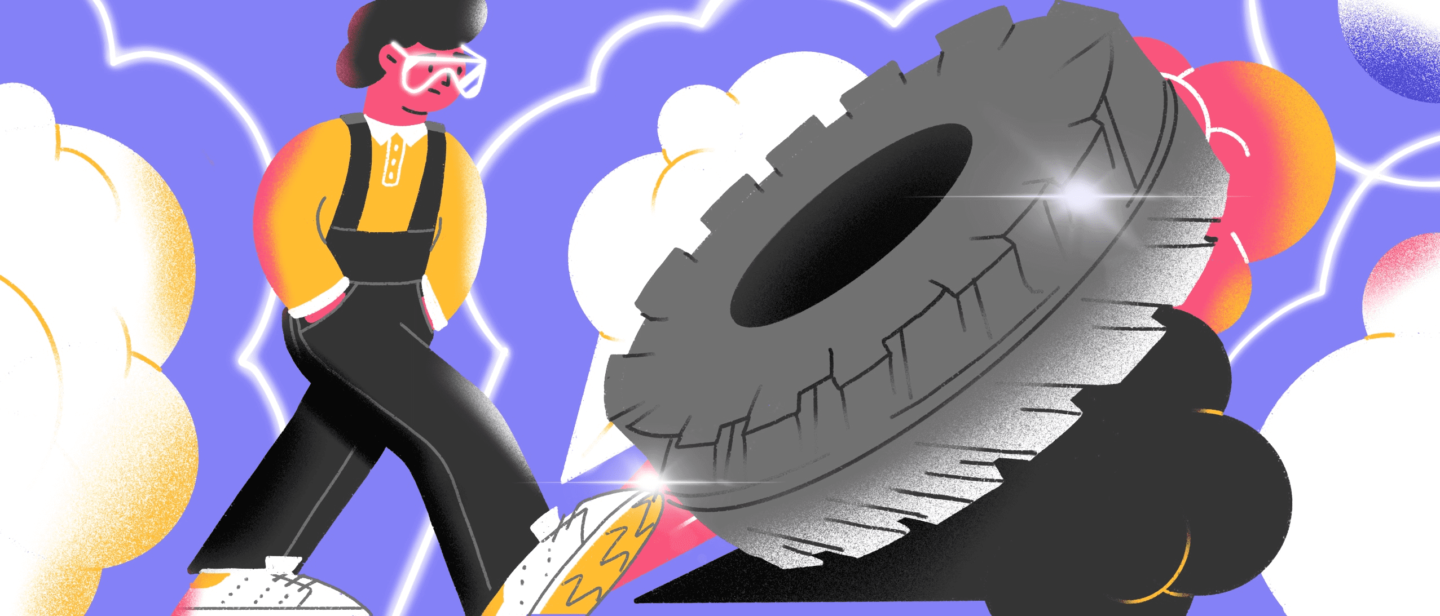
So many names, so many faces. But the point is the same ─ tire kicker. A type of client, to be sure.

He’ll win your trust with a sincere interest in the product. He’ll ask a million questions about the product features, price, development, discounts, etc. This scintillating conversation can take you hours, days, or even weeks.
And when you almost feel the joy of the closed deal…
He kills you will a fatal “Let me sleep on it,” aka “I didn’t even mean to buy anything here.”
A tire-kicker isn’t a horror movie character, but a real person. Sooner or later, he comes to every salesperson to:
- interrupt your focus on more profitable leads,
- waste your time,
- ruin sales metrics.
Don’t try to call the police. Nobody will help you except you.
How to stop him? Protect yourself with a stiff ‘yes’ or ‘no’ as quickly as possible.
This article explained how to identify tire kickers and provided a list of solutions to keep them out of your pipeline.
Read also:
- Attract customers with these 24 ecommerce lead magnets
- The 7 Key Email Marketing Metrics & KPIs You Should Be Tracking
- Product adoption: 7 tips to prove your value
- 3-step guide on inbound lead qualification: how to qualify inbound leads on autopilot
Have no time to read? The fast solution to tire kickers is at the end of this article 👇
What is a tire kicker?
A huge time suck.
Its first victims were car dealers. There were people who visited car dealers frequently. To show interest, they kicked the tires. But the truth is that they hadn’t even thought about a purchase.
This origin story explains the meaning of the “tire kicker” definition.
Tire kicker is a prospect, who appears to be interested in buying something and asks a lot of questions, but does not buy anything.
In Dashly case, it is a representative of a company that has no website. So despite the sincere interest in our product, he can’t or won’t ever come to a buying decision, because there is no place to use it.
Tire kickers can also be called:
- Entitlement clients who aren’t happy that they have to spend money on your product.
- Clueless shoppers who don’t know all the details of the product they are asking for a price. This makes them worry about the wrong choice.
- Confused clients who have no idea what they want.
- Price hunters who are in search of the best deal possible. This is because they are either frugal with their money or have paper-thin purchasing budgets.
To complete the picture and fully understand tire kickers, let’s compare them with their opposite ─ Ideal Customers:


- fits your Ideal Customer Profile or buyer personas;
- engages with marketing and sales guidance (pop-ups, help instructions, FAQ, etc.);
- is more likely to talk to the sales manager on the final step of the buying process;
- tells you the price range they are ready to pay for a product based on the similar tools research;
- has a clear understanding of the deadline to find the solution for a problem or task;
- introduces other decision-makers to make a purchase decision.
- doesn’t fit your Ideal Customer Profile or buyer personas;
- ignores information on your website or socials, preferring to waste your time repeating it for a long time;
- doesn’t give a clear explanation of the reasons that prevent them from buying a product;
- hides the budget for a project.
- doesn’t tell you the timeline to purchase;
- doesn’t make a final purchase decision with a clear YES;
- doesn’t believe in proof of the benefits your product can bring.
They seem to be pure evil. There’s a reason for it.
Read also:
- 10 best customer engagement strategies
- Client onboarding: how to engage, retain, and win users
- Customer engagement strategy: a complete guide to winning prospects in 2023
- What customer engagement platform is best for your business? 15 options to choose.
What makes tire kicker so dangerous
In like 99.9% of cases, the tire kicker does not intend to cause harm on purpose!
At the same time, they are:
- wasting your time using your professional experience;
- ruining your sales and marketing metrics. For example, Conversion Rate, Average Revenue Per User, Number of deals in your pipeline, etc;
- preventing you from investing in revenue-generating prospects;
- wasting your budget when you send them ads, marketing campaigns.
Tire kicker has a toxic effect on your team self-confidence as professionals. It takes a lot of faith and guts to strike out on your own, and if you have teammates working with you.

The answer from a community is about the scenario where you don’t qualify your leads. In this part of the article, you’ll find seven characteristics to identify “tire kicking” leads during a call.
Tire Kicker red flags
- They don’t investigate your product.
- They always have budget objections.
- They love to talk.
- They don’t have a deadline to choose their tasks’ solution.
- They want your product for free.
- They don’t fit the Ideal Customer Profile
- They are aggressive.
Lets’ start.
Read also: 👉Lead nurturing platform for your revenue growth
1. Tire kickers don’t investigate your product before talking to a sales rep.
Prospects with the potential to purchase have a general idea of what product and value your business provides.
Tire kickers want nothing more than attention. Since these prospects have no goal to buy, they don’t want to research info. Instead, they prefer you to provide them with all the needed information via chat or call.
Solution: Check this by tracing prospects’ behavior on a website.
I mean, what pages they visited on your website. For example, one of the criteria we use to consume lead qualified is the visit of product and pricing pages. We also pay attention to the number of sessions and time on a website.
All this info is visible on the user card:
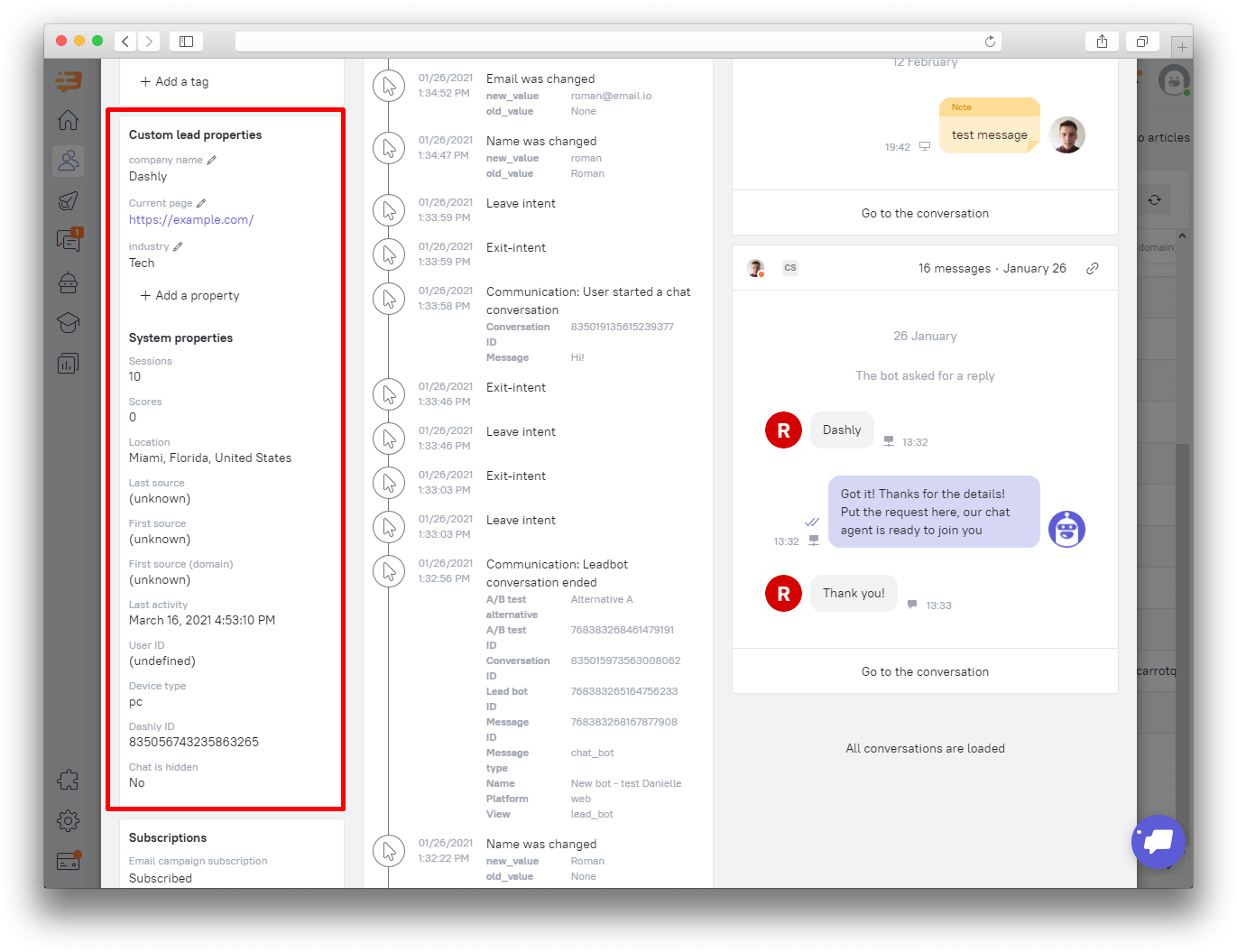
It doesn’t mean you should rule out leads that haven’t shown interest in your product. Just give your marketing time to nurture these leads. Then, call these prospects only when you’ll see the relevant events in their user card.
What to do in a conversation with such a prospect: Send them relevant resources to read.
You probably have numerous articles about your product in the knowledge base, FAQ, blog articles. So just share these links with tire kicker.
Read more
- 10 Best Live Chat Software for Customer Support
- 10 Best Customer Service Chatbot Platforms to Level Up the Work
- How to create a user journey online map for your online school students [4 free templates]
- Increase Customer Support Efficiency With 15 Best Knowledge Base Tools
- Chatbot platform Guide: What can a chatbot do for your customers 24/7
2. Tire kicker always has budget objections.
- They are trying to discuss the price.
- There is a big payday they are waiting for months.
- They don’t give you a reasonable budget range.
- Their payment approval is always “just around the corner,” as well as their buying decision.
- They say your product is too expensive.
These are red flags of prospects who can’t afford your product or lacks the authority to make the purchase.
What to do in a conversation with such a prospect: Pitch Value Over Price
To separate prospects who are just kicking tires from those who genuinely don’t have the budget, reply to them: “I hear you. But the best products are often more expensive.‘
Instead of immediately providing a price, use the knowledge you’ve learned about their circumstances to give the value your product offers. Again, this will be a great argument why it’s the greatest option for the prospect’s specific needs.
Either a prospect answers with “it’s too expensive” or not will help you understand whether you’re dealing with an impossible or a problematic sale.
- When prospects lack a budget, let them know about that.
- If it is possible, offer them an alternative solution.
For example: “Due to what you said about your financial situation, I don’t think our product is a good fit for you. Try our free plan instead.”
3. Tire kicker loves to talk.
Schmoozing ─ that’s what tire kickers love most of all.
These prospects will ask a million questions about a product. They like to hear about each of its integrations, features, and even roadmap.
If that’s ok, what about their interest in your weekend, hobby, kids, education, etc?
Tire kickers have their own opinion on everything you tell and ignore your attempts to move the sale forward. Sounds like an endless and useless title-tattle, heh?
What to do in a conversation with such a prospect:
- First, create a conversation plan that outlines the next stage in your sales process.
- Prepare a list of questions to push the conversation back on track when your prospect starts to wander.
Thanks! Check your inbox now

- Let your prospects know the progress you need from them for the next call, for example, budget approval, the website traffic and list of integrations they need, time of the sales presentation.
- If prospects ignore your attempts, use a form to fill out their interests: budget, challenge, deadlines, goals they would like to achieve, previous tools they used, and why they decided to change it, etc. Prospects, who have already spent a significant amount of time with you, are more eager to fulfill this form because they know that it will help them finish this task. Tire kickers aren’t so happy to interact with a form.
Read also:
Capture emails from website visitors with Pop-ups
The best way to collect emails we tested this year
4. There’s no timeline to purchase for a Tire Kicker
Timeline to purchase info is an essential criterion defining potential customers. These people are looking for something to solve a current issue or the one that’s just down the road.
If prospects are silent about when the problem should be resolved, abandon hope to close the deal anytime soon. You look at one of the tire kickers who aren’t ready to make a purchase or work with you.
What to do in a conversation with such a prospect: Check readiness to purchase.
The main point here is to schedule the collaboration plan and set the product demo or free trial time. If clients agree with that plan and wish to master the product fast, they are really interested in the purchase.
Here are examples of questions to ask:
- Do you have any impending events or deadlines for which you’d like to have a solution in place?
- Do you plan any marketing, sales campaign? When?
- Which is your target for [next quarter, half the year] [best generation, income, retention, etc.?]? Can you achieve this goal without any change?
- We should finalize our agreement by [earlier date] if we work backward from the date you gave me. Is it ok for you?
If they aren’t ready, offer an alternative ─ non-competitive solutions for their level of preparedness to purchase.
Read also: how to find respondents for a survey or customer interview
5. Tire Kicker wants your product for free (full version)
These freebie hunters love to ask, “Why is it not free?”.
And it is ok. Everyone wants a test drive with the product’s free samples, trials, and demos. It is integral to make a buying decision.
But tire kicker just doesn’t want to pay. So that’s why they are pushing for free content.
What to do in a conversation with such a prospect: Analyze buyer intent
It’s about the prospect behavior on the website. Here are examples of internal buyer intent data we pay attention to in Dashly marketing and sales:
- Lead submitted its website URL. Providing a website URL indicates acknowledgment that our product can be used in such a way only.
- Lead shared its job title.
- The visit of the product landing, pricing page, case studies.
- Time on the website/page. The more time a lead spends on the website, the more interested it is in our products.
- Downloading playbooks with the ready-made scenarios on how to use our Leadbot. (You can find them in the library, by the way)
- Reading our email newsletters.
Sign up to see how to collect this info with Dashly user tracking on website
Read also: The North Star Metric and How Can This Lead to Success
6. Tire Kicker doesn’t fit your Ideal Customer Profile and Buyer Personas.
If the prospect doesn’t meet the criteria you and your team have set, then they’re not worth your time:
- They aren’t from your target region. For example, the prospect is from the country you can’t deliver the product to.
- Your product doesn’t fit the needs of the prospect.
- These specialists’ position within a company doesn’t match the one, whose reps usually buy or use your product. For example, the support manager usually doesn’t buy Adobe Illustrator for work.
In Dashly we use an onboarding survey to know this info before delivering new users to the sales team.
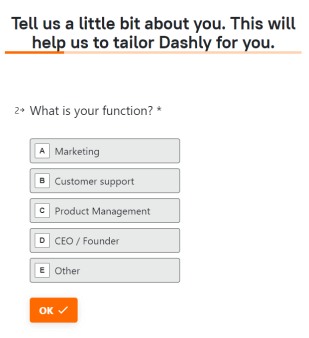
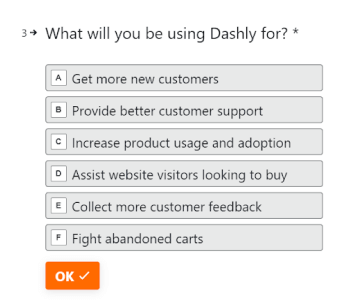
Qualifying questions for new users to define tire kickers during onboarding in the Dashly platform.
It helps us to make sure, we’re not just giving away consulting time to someone who will never, ever convert.

This is Polly, our CRM marketer. She explained all the details of this process in this interview article: “How Dashly team does lead qualification”.
Solution: Qualify leads
Based on your ICP create a list of questions to ask in a contact form. This will save your sales team from tire kickers. Marketing will process such prospects with the help of an email campaign, target ads on socials, and on a website.
Moreover, when you deliver a hot lead with all the answers to qualification questions, they can focus on the more important aspects of the conversation.
Read also:
Analyzing Sales Funnels: Reporting Techniques That Work
Why Automating Your Sales Funnel is Key to Growth
7. Tire Kickers can be aggressive
They may call you a scammer.
They may threaten you by sharing negative feedback about your company for their 20 followers on Facebook.
But the truth is that there is anything they are ready to be serious about.
What to do in a conversation with such a prospect: Keep calm and offer them to fill out the feedback form. This will save your time and feelings.
Thanks! Now check your inbox
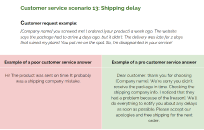
Is there is a chance to convert a tire kicker into a customer?
Yes.
But not today.
There is no 100% warranty that a tire kicker won’t buy. It’s uncommon for someone to look for products they don’t need at all. The fact that reaching out to you means that they may be ready to buy at some point.
Thus, don’t rush to give tire kicker a cold shoulder. Everything changes. And when someone is hesitating about the purchase, it would be better to leave them with a good impression.
The fact that tire kickers passed today doesn’t mean they can’t recommend your product to other potential customers.
Read also: Find out the best Intercom alternatives and Drift alternative
Is there is a chance for a sales team to avoid tire kicker?
Yes.
Qualify leads on the top of the funnel.
When you capture website visitors’ names and emails in the lead generation chatbot, pop-up, form, add there a few more fields.
For example, when your visitors will answer the chatbot questions, in addition to the name and email they will share their website URL, company size, job title, etc. This info goes to the user card automatically. Those who match your ICP will be sent to sales, those who aren’t — to marketing nurture campaigns.
To make this real, you have to:
- Define your Ideal Customer Profile (here is a guide for you).
- Create a list of qualifying questions.
- Add to the form or a chatbot flow.
Thanks! Now check your inbox
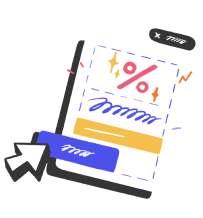
Read also:
- Customer VS Client — making the difference clear
- Why eCommerce and omnichannel are inseparable?
- How to qualify lead within sales and marketing teams
- Ultimate guide to inbound lead qualification in EdTech marketing
- How to Qualify and Collect More Leads with Lead Bot?
- How BANT sales process can help you get qualified SQL in 2022
- The best way to collect emails: 5 top-notch methods unveiled
- Choose your ideal lead nurturing platform: Top 10 software tested by experts
- How to implement user tracking on website: guide, tactics, and tools
- Top 10 user activity monitoring tools: tracking features, price, cons and pros
- Acquisition funnel marketing: Grow customer conversions at each step of user journey
- Top 20 best website tracking tools for effective work with visitors
- 20 AI sales tools: Boost your sales strategy with revolutionary technologies
- Top 13 follow up email software to elevate your email marketing strategy
- 10 best predictive lead scoring software to boost your sales funnel
- Guide to sales funnel optimization: best tips, tools, and common pitfalls.






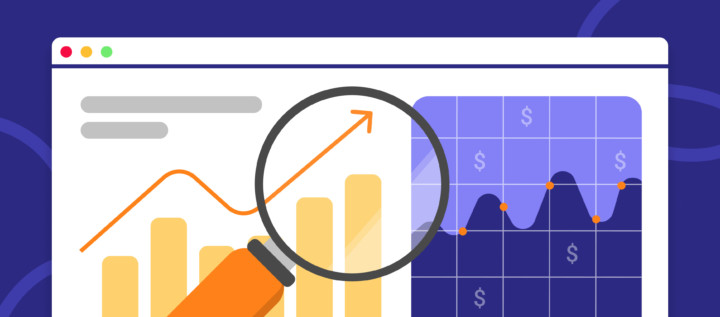
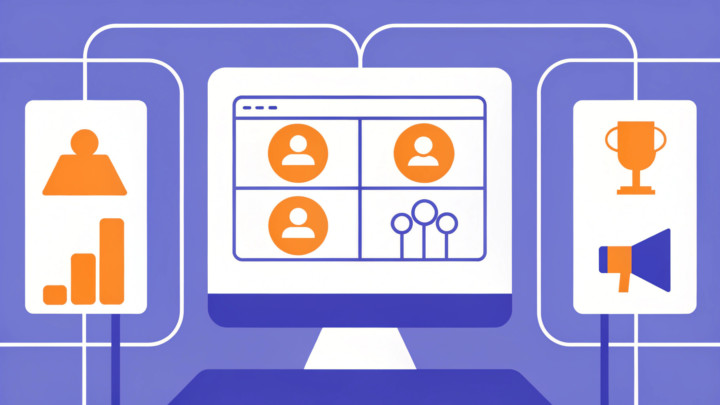
![Sales and Marketing Automation: How to align their workflow to 2x revenue [Dashly example]](https://www.dashly.io/blog/wp-content/uploads/2021/06/IMG_1074-1100x471-1-720x308.jpg)
